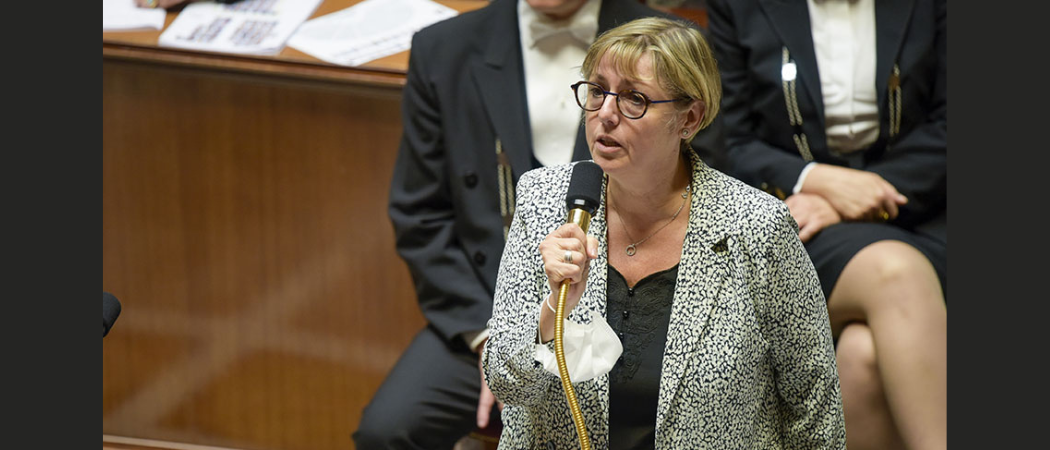Scientists have delivered a report to the government pointing to long-standing weaknesses in the structure, management and funding of research in France. Reform is now on the cards

Sylvie Retailleau, France's minister for higher education and research. Photo: Assemblée nationale
France could be about to appoint its first government chief scientific adviser as part of wider reforms to the research system that are called for by scientific experts in a report submitted to Sylvie Retailleau, minister of Education and Research, last month.
Five researchers, each from a different discipline, put forward 14 proposals to reorganise, simplify and transform France’s research and innovation environment, after Retailleau commissioned them to conduct a review last December.
The work was overseen by Philippe Gillet, a geophysicist who is vice president for academic affairs at École polytechnique fédérale in Lausanne, and a former president of ANR, France’s National Research Agency.
The main problem as the scientists see it, is red tape and a shortage of funding. An excessive administrative burden is holding back researchers’ creativity, while the top down way in which research is directed and a lack of clarity about the relationships between the major research universities and national research agencies like CNRS and Inserm, leaves researchers feeling their jobs are an “obstacle race”, the report says.
To address this, a new structure should be put in place, centred around six strategic goals, in order to ‘renovate’ the research and innovation environment, clarify the position of researchers who currently find they are reporting to more than one manager, and give them more time to carry out research, in effect to modernise the system in its entirety, says the report.
Top to bottom reform
Modernisation must involve changes to how the research system operates from the lowest levels up to the government and the Elysée Palace.
At the top, the reports argues for the Conseil stratégique de la recherche (CSR), a scientific advisory body to the prime minister, to be scrapped, saying it has been “dormant” since its creation in 2013, and in any case lacks strategic impact.
In its place, the report proposes establishing a Haut-conseiller à la science (HCS), a full-time scientific advisory body to either the president or the prime minister, modelled on counterparts such as the chief science adviser in Canada, the government chief scientific adviser in the UK and the prime minister’s chief science adviser in New Zealand.
The HCS should be under the authority of the ministry of education and research, the report says.
There is also a recommendation to give the research agencies a greater role in steering research programmes at a national level, by coordinating a Plan national de recherche (PNR), to consolidate or build French leadership in scientific fields where it has existing strengths.
This would be ‘trickled down’ to local institutes and universities, drawing on the Pôle universitaire d’innovation (PUI), a programme of innovation projects run by the Ministry of Education and Science.
The regions should look out for partnerships with PUI projects in an effort to boost complementarity, says the report.
The PNR will hang on the government’s ability to tackle the elephant in the room, which is the notorious administrative overheads in the complicated French research system.
To deal with this, the report says different arms of the research system should share the same management infrastructure and there should be ‘a no-wrong door principle’ to bypass the existing complications of validation and signatures being required from each laboratory.
There are fresh ideas for retaining research students and professors, mainly by levelling the teaching playing field, by spreading responsibility for teaching between early and more high-profile researchers and recruiting across France’s laboratories and universities.
Money
The report pushes for an increase in the overall budget to stop years of squeeze. France spends 2.2% of its GDP on R&D, below Germany and the US. Only €1 billion of the €50 billion budget of its innovation programme, France 2030, was spent on high risk research.
Investment on frontier research should be bumped up from €1 to €2 billion, the report says.
Similarly, there should be more money for early researchers and doctoral students to attract them to research careers in France and stop them from going abroad.
The ministry expects to start implementing the reforms in September 2023, according to a letter from Retailleau to Gillet.





 A unique international forum for public research organisations and companies to connect their external engagement with strategic interests around their R&D system.
A unique international forum for public research organisations and companies to connect their external engagement with strategic interests around their R&D system.